Marrakech Film Festival 2024: Highlights and chats with David Cronenberg, Diane Kruger, Gemma Arterton and more
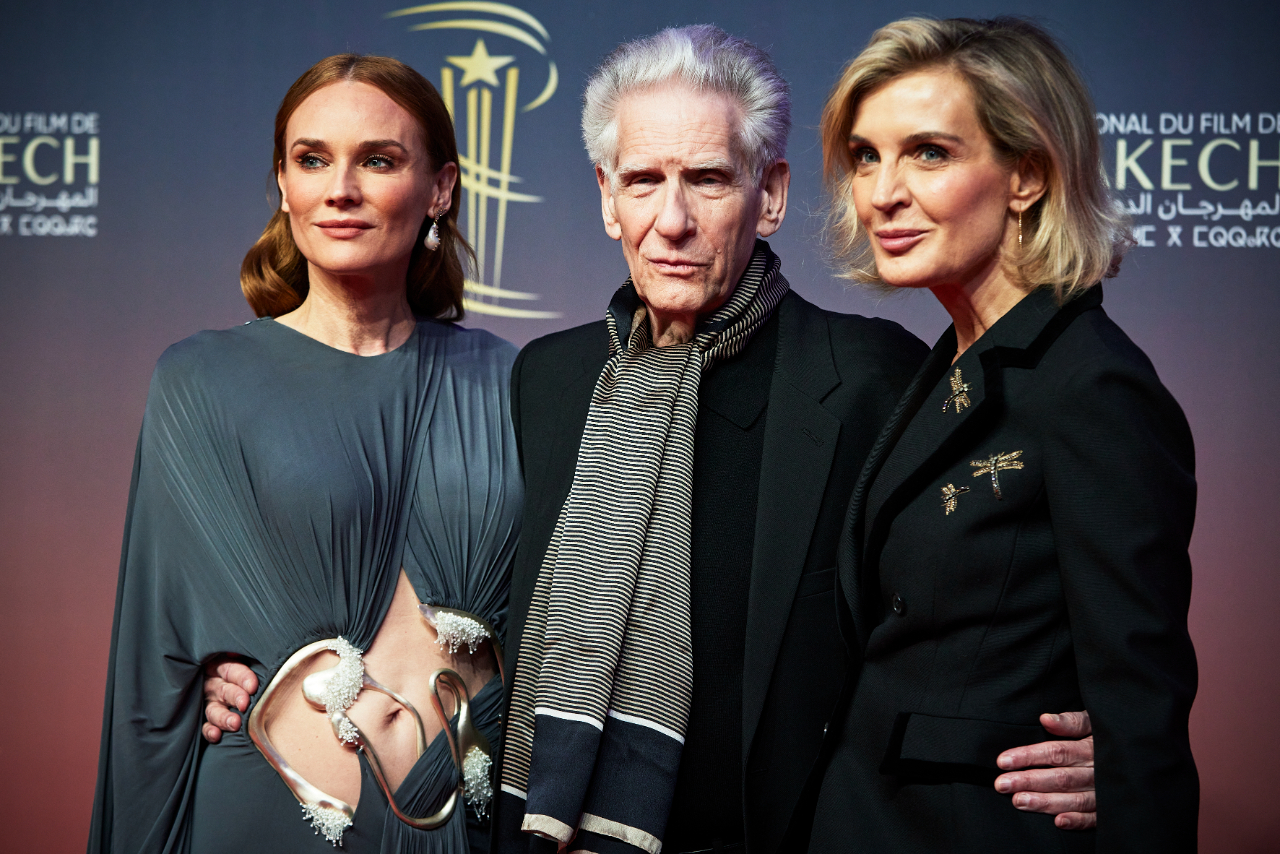
This week, another illustrious edition of the Marrakech Film Festival came to a close. In a calendar of international film festivals that can often feel crowded and oversaturated, the event continues to be a glimmering gem, bringing together some of the finest auteurs from across Europe and Hollywood with those from the Middle East and North Africa, a place for burgeoning talent from the region to be nurtured and the next generation of filmmakers from Morocco and beyond to be inspired.
The jury line-up was one of its best and most multinational yet, led by none other than Italian director Luca Guadagnino, plus Iranian director Ali Abbasi, Indian director Zoya Akhtar, US actor Patricia Arquette, Belgian actor Virginie Efira, Australian actor Jacob Elordi, British-US actor Andrew Garfield, Moroccan actor Nadia Kounda and Argentinian director Santiago Mitre.
The 21st edition ended on a high, awarding Scandar Copti’s Palestinian film Happy Holidays the coveted Étoile d’Or, while the Jury Prize went jointly to Argentinian Silvina Schnicer’s The Cottage and Somalian Mo Harawe’s The Village Next to Paradise. Polish director Damian Kocur received the Best Directing Prize for his film Under the Volcano about a Ukrainian family on holiday in Tenerife when the war broke out. The star of his film, Roman Lutskyi, was honoured with the Best Performance by an Actor, plus Wafaa Aoun and Manar Shehab shared the Best Performance by an Actress award for their roles in the top prize-winning film Happy Holidays.
The festival also paid tribute to influential figures in cinema, including the late Moroccan actress Naïma Elmcherqui, revered director David Cronenberg and actor Sean Penn, who encouraged the auditorium to “embrace diversity and keep telling stories”, and a host of stars delivered fascinating in-depth Conversations, including Cronenberg, Penn, Ava Duvernay, Gemma Arterton, Walter Salles, Alfonso Cuaron and more.
Furthermore, the festival provided a platform for 71 films from 32 countries across six sections, which reached a broad audience of 40,000 spectators, including 7,500 young attendees as part of its Young Audiences and Families initiative. The seventh iteration of the Atlas Workshops, a key jewel in the festival’s crown, was another success, with 27 projects going through the incubation process to become the films of tomorrow.
The Upcoming were there on the ground once again to soak up the atmosphere, hit the red carpet and sit down for chats with the incredible array of talent in attendance.
Amid banter about Elordi’s new beard and (false) speculation around his participation in Guadagnino’s upcoming American Psycho adaptation, at the opening press conference, the Italian director and his fellow jurors shared their enthusiasm for cinema and the festival itself, highlighting the joy of watching movies as a collective and engaging in deep conversations about them. They also discussed the challenge and responsibility of judging films, emphasising the difficulty in comparing and awarding diverse cinematic stories.
On the red carpet, ahead of receiving his tribute, David Cronenberg shared insights into the integral role of humour in life and his films, particularly in dealing with themes like grief, as seen in The Shrouds, his latest film screening at the festival. He believes humour helps navigate life’s challenges, a reflection evident in his work.
Diane Kruger, star of The Shrouds alongside Vincent Cassel and in attendance to present Cronenberg with his award, expressed her immense admiration for the director, highlighting his significant impact on her life and on a generation of filmmakers. She praised his humble and trusting directorial approach, which she found inspiring during their collaboration. Kruger also delved into the complexity of her dual role in their project, describing the emotional depth required for the wife’s part contrasted with the enjoyable experience of playing the sister. This role, she noted, allowed her to explore a range of emotions, from intense emotional scenes to lighter, fun moments.
Virginie Efira shared her enriching experience as a jury member, emphasising the lengthy and democratic deliberations over 14 films. She highlighted the challenge of reaching consensus, especially with jury head Guadagnino, and the spirited debates that ensued. Efira reflected on the diversity of perspectives she encountered, underscoring the unifying power of cinema across different cultures and her anticipation of how these insights might influence her future work.
Director Ava DuVernay stopped to share her passion for cinema and the joy of discussing filmmaking, her admiration for the festival’s unique blend of cultures and its role in promoting regional talent but also highlighted the slow progress in achieving gender equity in cinema, emphasising the need for substantial, not just symbolic, advancements.
Brazilian filmmaker Walter Salles spoke about his latest feature, I’m Still Here, set against the backdrop of 1970s Brazil under military dictatorship. The narrative, inspired by a family Salles holds dear, explores themes of loss and the necessity of reinvention amidst political turmoil. Salles reflected on the personal resonance of the story, attributing his ability to tell such a compelling narrative to a deeply personal connection and self-reflection. He praised the performances of Fernanda Montenegro and Fernanda Torres, considering them not just actors but co-authors of the film due to their significant contributions. Salles also highlighted the importance of film festivals in facilitating a dialogue between different cinematic voices.
Mexican Alfonso Cuarón shared his insights as a director, emphasising the value of authenticity in filmmaking and the daunting experience of presenting work to an audience for the first time.
Gemma Arterton reflected on her diverse and unconventional career journey, from Tamara Drewe to Bond girl and beyond. She highlighted her move into producing as a way to have more control in an unpredictable industry, advising aspiring actors to pursue their passion with genuine love for the craft. Arterton reminisced about her previous experience as a jury member at the festival, noting the joy of meeting like-minded individuals and celebrating Bollywood, which she admired growing up in a Sikh community. Her return to the festival, she remarked, feels special and brings back memories of camaraderie and inspiration among filmmakers and actors.
Moroccan actress Nadia Kounda shared her jury experience, particularly the importance of emotional connection and truth in evaluating a film. Kounda expressed her desire to honour the late Naïma Elmcherqui’s legacy, underscoring the emotional significance of the night and her close connection to the cinema family.
The festival’s Artistic Director Rémi Bonhomme highlighted its mission to spotlight emerging filmmakers worldwide through its competition for first and second films. He praised the jury, led by Guadagnino, for their dedication to discovering new cinematic voices and aesthetics. Bonhomme also noted the festival’s focus on youth and contemporary issues like climate change, indicating these elements are key to captivating the jury. This blend of innovation and relevance, he believes, defines what stands out in the competition.
American filmmaker Jeff Nichols also chatted to us about his role in mentoring at the Atlas Workshops, explaining the importance of listening to and amplifying diverse voices in filmmaking. He highlighted the challenges filmmakers face in bringing their stories to an international audience, stressing the value of stories from varied backgrounds for enriching society and culture. Nichols, reflecting on his own journey and the impact of film festivals on his career, shared his anticipation for working with emerging filmmakers from Africa and the Middle East. He also teased upcoming projects, including adaptations and an original script.
Eric Cantona expressed profound appreciation for being at the Marrakech Film Festival, highlighting its significance in celebrating cinema and its role in showcasing emerging Moroccan filmmakers to a global audience. He praised the festival’s director for her impactful contributions to cinema and the festival’s success. Cantona also raised the importance of festivals in bringing attention to the rich artistic and historical narratives of Africa, mentioning his admiration for the contemporary art scene. Reflecting on his career transition from football to the arts, he shared his journey into acting, theatre and painting, cherishing the continuous support from his fans.
French-Algerian singer and actress Camélia Jordana discussed her role in competition film Silent Storms, describing it as an exploration of memory, grief and how a nation’s collective choices shape its structure. She delved into the challenges of authentically portraying a character using a specific Algerian Arabic dialect, a task that ignited her passion for accents. Jordana expressed profound honour in the film’s screening at the festival, particularly in a context that understands its cultural and historical nuances.
Russian director Kirill Serebrennikov expressed his admiration for the city’s vibrant, welcoming atmosphere and looked forward to engaging with young creatives in his masterclass, highlighting his forward-looking perspective. He shared anticipation for his upcoming film release, Liminov: The Ballad of Labad, starring Ben Whishaw, praising his exceptional talent and versatility. Serebrennikov also touched on the influence of David Cronenberg, a tribute honouree, and his impact on directors with his innovative art.
Zahra Amir Ebrahimi discussed her role in the Algerian movie The Vanishing screening at the festival, highlighting it as a novel experience divergent from her cultural background, portraying a universally relatable character. She emphasised the film’s exploration of patriarchal dynamics, specifically between fathers and sons, and her character’s role in aiding the protagonist’s psychological healing. Ebrahimi praised the collaborative working environment with the director and her co-star, appreciating the fresh talent in the region. She expressed hope for the film’s impact and the significance of its presentation at the festival, underscoring the importance of cultural exchange and unity in the North African and Arab film industry.
Sammy Lechea also stopped to talk about his role as Isa in the film, reflecting on the character’s struggle with identity and control within a wealthy Algerian family after his father’s death. Lechea explored the unique father-son dynamic, contrasting common patriarchal narratives. He praised the director’s collaborative approach and shared the challenges of portraying Isa’s emotional journey. Lechea hopes the film’s universal themes resonate globally and expressed ambition to work with Daniel Day-Lewis, admiring his dedication to acting.
Alexandra Simpson shared her journey of bringing her film No Sleep Till to the festival, and its serene exploration of stagnation amidst chaos in a dreamy Floridian town, drawing inspiration from Taiwanese New Wave cinema and authors like Raymond Carver. Simpson aims for her audiences to find calm and embrace her characters, reflecting on the unexpected soothing impact her film has had. As she plans her next projects, including a second feature film, Simpson spoke of the importance of festivals for independent cinema’s visibility, expressing a desire to balance artistic integrity with the practical benefits of larger budgets.
Anna Mouglalis introduced Across the Sea in which she portrays Anoi, a deeply complex character who embraces her husband’s true desires despite societal constraints, showcasing a profound level of acceptance and love. She highlighted the uniqueness and emotional depth of the role, emphasizing the script’s powerful impact on her. Mouglalis also reflected on the joy of bringing her full personality to the character, encouraged by the director. She expressed the significance of the film’s screening at the festival, especially as it marks a momentous time for women in cinema, acknowledging ongoing challenges but celebrating progress.
Silvina Schnicer shared insights into her competition film, The Cottage, revealing it as an intimate piece inspired by her own family memories, blending suspense and genre elements organically discovered during filming. Despite facing challenges, she valued working with a close-knit crew. Schnicer expressed her surprise and gratitude for the film’s inclusion in the line-up, highlighting the festival’s role in promoting female filmmakers and connecting global cinema.
David Oelhoffen shared the significance of showcasing his film The Fourth Wall set during Lebanon’s Civil War, a narrative blending past and contemporary issues. Oelhoffen expressed his nervousness and excitement about the film’s reception, especially its relevance to Arab cinema and the ongoing conflict in Lebanon. He discussed the film’s exploration of art’s power against war, aiming to provoke thought on the complexities of conflict and the importance of utopian ideals amidst current global pessimism. Oelhoffen underscored his belief in individual idealism over political actions, hoping his film encourages deeper reflection on war’s multifaceted nature and fosters empathy.
Hayato Kurihara and Yukito Hidaka shared insights into making Happyend, a coming-of-age drama set in near-future Tokyo by Neo Sora, and the experience of being in front of the camera for the first time.
British actor Jason Clarke expressed his delight in being invited to attend a festival that fosters cross-cultural exchanges and nurtures talent globally. He praised the festival director for her dedication to blending commercial success with artistic integrity, highlighting the festival’s role in attracting quality filmmakers and improving regional cinema.
Moroccan filmmaker Alaa Eddine Aljem, shared his views on the significance of festival awards as a form of recognition for filmmakers, despite not being the ultimate goal. His experience moderating the Alfonso Cuaron discussion was a highlight, particularly due to its unstructured, conversational approach. Reflecting on his career, Aljem expressed gratitude for the attention The Unknown Saint received and discussed his upcoming projects with enthusiasm. He also highlighted the promising future of Moroccan cinema, praising the diversity and talent of new directors and candidly sharing his self-doubts, which contrast with the recognition his work has received.
Kamal Lazraq discussed the significance of winning an award for Moroccan directors, highlighting its role in elevating local cinema on both a national and African level. He shared his excitement about directing a second film, aiming for improvement. Lazraq also reflected on mentoring young Moroccan and African filmmakers, encouraging a break from traditional cinematic forms towards more innovative and authentic storytelling. He stressed the importance of authenticity in filmmaking, advising against imitating foreign styles and emphasising sincerity as a path to universality.
Peter Kerekes shared his excitement about premiering Wishing on a Star and his anticipation for audience reactions. He described the festival as a vital platform for cross-cultural exchange and nurturing emerging filmmakers, based on colleagues’ impressions. His film, a documentary comedy, explores the universal quest for love across the globe. Kerekes enjoyed every part of the filmmaking process, which was both challenging and rewarding, and hopes to bring a fresh perspective to documentary filmmaking by focusing on emotions, and relationships, using humour to bridge ideas.
Romanian-French filmmaker Radu Mihăileanu expressed his longstanding affection for the event and Morocco, having never missed an edition in 20 years and having filmed The Source there. He praised the festival for its celebration of African cinema and its role in fostering cross-cultural exchanges and nurturing new talent from the MENA region through workshops and masterclasses.
María Treñor spoke about the African premiere of her film Rock Bottom and expressed her sense of privilege in showcasing her work in such a vibrant city. The film, an animated feature inspired by Robert Wyatt’s 1974 album, delves into the tempestuous relationship between two hippie artists in the 70s. Treñor hopes audiences will appreciate the era’s atmosphere, the love story and Wyatt’s music. She also touched on the progress and ongoing challenges for female filmmakers, acknowledging a persistent struggle for equality in the industry’s power dynamics.
Actor Jonathan Cohen shared his anticipation for discovering the Marrakech Film Festival’s winner, highlighting the prestige of the jury’s selection and the potential career boost for the awardee. He briefly mentioned his recent project, a unique romantic comedy blending elements of The Sixth Sense, about a man unaware of his own death, expressing hope for its success.
British-Moroccan actor Youssef Kerkour shared his pride in returning to his homeland for such a prestigious event, emphasising the importance of cultural exchange and the normalization of Morocco through cinema. He praised the festival’s role in showcasing local talent and highlighted his own projects, including a Netflix film and a Game of Thrones instalment. Kerkour also expressed his ambition to bridge Moroccan and British film practices, advocating for Anglophone content in Morocco’s Francophone-dominated industry. Furthermore, he discussed the ongoing need for diversity in the UK’s film industry, advising professionals to adopt a global perspective.
Alexandre Bouyer discussed his role in a film about Frantz Fanon, Fanon, highlighting his time as a psychiatrist in Algeria and his insights into colonisation. Bouyer was drawn to the complexity of Fanon’s character and prepared intensively, including significant physical transformation. He hopes the film educates viewers on Fanon’s lesser-known stories, especially in the US. Bouyer expressed honour in showcasing the film in Africa, acknowledging the festival’s significance. He also noted progress in opportunities for diverse voices in cinema and teased future projects.
Actor Charlie Anson chatted to us about his role in Jane Austen Wrecked My Life, the evolution of the romcom, bridging French and British humour and working with director Laura Piani and opposite the brilliant Camille Rutherford.
Festival Director Mélita Toscan du Plantier reflected on this edition of the Marrakech Film Festival ahead of Sean Pean”s tribute, particularly her enduring efforts to honour the actor, overcoming obstacles to secure his acceptance through personal connections. She further spoke about the festival’s growth, attributing its success to her dedication and the collaborative spirit fostered among the jury, notably praising Luca Guadagnino’s enthusiasm for cinema and his connection to Morocco. She underscored the festival’s role in cultural exchange and supporting Arab cinema, stressing the importance of passion over commercial interests.
Aram Sabbah and Mahmood Bakri discussed their film To a Land Unknown exploring Palestinian refugees’ lives in exile, offering an insight into the struggles of Palestinians seeking a better life outside their country, based on real stories and the director’s preparatory documentaries. They also touched on cinema’s potential to humanise these experiences, fostering empathy and encouraging a deeper understanding of the Palestinian plight, amidst a backdrop of widespread apathy and media bias.
Ariunaa Tserenpil and Gabrielle Brady shared insights on their hybrid documentary, The Wolves Always Come at Night. Set in rural Mongolia, it blends documentary, fiction and magic realism to depict a young herding couple’s struggle after a devastating storm, exploring their deep connection to nature. Highlighting the film’s unique narrative approach, they discussed its portrayal of grief and adaptation. Additionally, they touched on the evolving landscape for female filmmakers, emphasising the breaking of genre and narrative stereotypes, and advocating for more representation and diversity in the industry.
Sylvie Ballyot and Fida Bizri also discussed their film Green Line and its unique blend of animation and documentary to explore the enduring impact of the Lebanese Civil War. They shared personal motivations behind the film, emphasizing the therapeutic role of animation in processing war experiences. They hope the film resonates with audiences in the MENA region, noting the cultural connections and differences with both Lebanon and France.
Actress Ana Girardot reflected on her cherished experiences at the festival, both as a former jury member and a recurring guest. She praised the festival’s unique atmosphere for fostering genuine conversations about cinema, free from pressure. Girardot discussed the subjective nature of film evaluation and the importance of making and judging films based on personal resonance rather than broad appeal. She highlighted the evolving landscape of French cinema, noting increasing opportunities and more complex roles for women, though acknowledging progress is still needed. Girardot also shared excitement about her upcoming role in the English TV series adaptation of The Count of Monte Cristo, revealing her aspirations, including her dream of becoming a Bond girl, and her admiration for director Paolo Sorrentino.
Actor Melvin Boomer shared insights into his latest project, a French-language Netflix show about an aspiring MMA fighter called The Cage.
Indian actress Payal Kapadia discussed her critically acclaimed starring role in All We Imagine as Light, highlighting its global reach post-Cannes Festival success, attributing film festivals to its distribution across over 50 countries. She expressed pride in showcasing a unique, female-focused narrative set in Mumbai centring the significance of friendships formed within the city’s vastness. Kapadia also shared the challenges of filming during Mumbai’s monsoon season and optimistically noted the progress of Indian cinema, especially applauding the contributions of female filmmakers and the international recognition of Indian films.
The film’s producer Thomas Hakim also reflected on the feature’s narrative exploring female friendships and societal dynamics in Mumbai and praised his collaboration with the director, spotlighting their shared debut in feature filmmaking. He also touched upon the importance of diversity in storytelling and the challenge of visibility amidst a saturated market.
Turkish director Murat Fıratoğlu spoke about writing, directing and starring in One of Those Days When Hemme Dies screening at the festival.
Damian Kocur expressed immense gratitude for receiving two awards at the Marrakech Film Festival 2024, especially from a jury he deeply admires. His film, Under the Volcano, focusing on the Ukraine war, aims to spotlight ongoing conflicts, hoping for global peace. Kocur plans to explore Morocco further. He also shared his anticipation for delving into American cinema and expressed interest in Moroccan actors for future projects.
Happy Holidays director Mona Copti further spoke of her profound appreciation for her film’s recognition, feeling a mix of joy and solemnity. Her powerful speech brought to the fore cinema’s potential to drive societal change, particularly highlighting the Palestinian narrative beyond conflict – a narrative of normalcy amidst adversity. She aimed to illuminate the lives of Palestinians in Israel, often overshadowed in media portrayals, focusing on their daily lives, relationships, and the impact of education and tradition on their identities.
Actress Manar Shehab also shared her gratitude and astonishment, especially being recognised by a prestigious jury she never imagined meeting. She highlighted the significance of their film in portraying the underrepresented Palestinian community, aiming to bridge divides and illuminate their struggles. Shehab also praised her co-star as a powerful force and reflected on their first-time acting experience, particularly the emotional and professional growth spurred by their dynamic collaboration.
Silvina Schnicer and Mercedes Córdova expressed genuine surprise and honour upon winning an award for The Cottage at the Closing Ceremony. They shared how they deeply valued the recognition from such a distinguished jury and their hope this accolade will elevate their film’s visibility and facilitate its journey to more festivals and audiences.
Mo Harawe also shared his appreciation for The Village Next to Paradise receiving a prestigious award, underscoring its significance in enhancing the film’s visibility. Harawe expressed hope that the accolade would attract a broader audience and acknowledged the award as a collective triumph for the entire team. He also highlighted the festival’s role in facilitating valuable connections and learning opportunities with professionals across the industry, from sound designers to musicians, enriching the filmmaking experience.
During the festival, we also had an in-depth chat with the fabulous Gemma Arterton, She reflected on her return to the Marrakech Film Festival, highlighting the unique intensity and camaraderie of being on its jury previously and the festival’s focus on African cinema and new filmmakers. She reminisced about her career trajectory, from dissatisfaction with early roles to embracing independent film and theatre. Arterton also discusses her venture into production with Rebel Park Productions, aiming to create impactful work and support female perspectives in the industry. She notes the evolving landscape for women in film, advocating for more opportunities and financial support for female filmmakers. Conversations about the industry’s shift towards valuing mature female roles and the positive impact of intimacy coordinators on set underscore her commitment to progress and inclusivity in cinema.
Justin Kurzel shared insights into his latest film, The Order, drawing inspiration from 1970s American cinema and based on the true story of heists funding a domestic terrorist group in the 1980s. He expressed gratitude for Jude Law’s involvement, both as a producer and lead actor, and discussed the challenges of portraying true crime stories with authenticity. Kurzel also delved into the film’s exploration of radicalization, leadership and masculinity, acknowledging its relevance to contemporary discussions on ideology and identity. He highlighted the joy of presenting his work at the festival, noting cinema’s power to initiate dialogue on complex issues.
French director François Ozon discussed his curiosity about audience reactions to his work and the process of focusing on his filmography. His latest film, The Crime is Mine, inspired by a 1930s play, humorously addresses women’s struggles against patriarchal society, reflecting on the relevance of such themes today. Ozon avoids intellectualizing his work, preferring to explore complex themes with a blend of seriousness and satire. He values working with both legendary and unknown actors, adapting his approach to each individual’s unique qualities. Ozon appreciates French cinema’s supportive environment and its audience’s enthusiasm for diverse stories, including those about older women, highlighting the freedom and resources available to filmmakers in France.
Argentine director Santiago Mitre shared his honour in being part of an esteemed jury, alongside respected peers and friends. He discussed the joy and responsibility of evaluating films, and the need for deep analysis and dialogue among jury members. Mitre reflected on the challenges facing Argentine cinema, underscoring its cultural significance and the need to preserve its legacy against political indifference. He spoke about his accalimed film, Argentina 1985, highlighting its global resonance and the impact of its Oscar nomination on his career. Mitre also touched on cinema’s power to spotlight historical truths, advocating for fearless storytelling amidst societal divisions. Additionally, he mentioned his upcoming projects, including a production for Netflix.
Nadia Kounda shared her joy and pride as a Moroccan jury member, highlighting the significance of the festival’s role in promoting cinema in Morocco. She expressed excitement about working alongside esteemed colleagues and her passion for films addressing women’s issues in society. Kounda discussed her career shift towards films that explore complex themes, such as love outside marriage and societal acceptance, reflecting on her involvement in projects that dive into the feminine condition and social change. She also touched upon the festival’s unique position as a cultural bridge between North Africa, the Arab world and Western cinema, as well as the universal challenges depicted in films and the potential for cinema to foster understanding and compassion across cultures.
Russian director Kirill Serebrennikov shared his journey in filmmaking, highlighting the universal language of cinema as a unifying art form. Discussing his latest film, he described the pleasure of working with Ben Whishaw and the project’s evolution amidst the backdrop of war, portraying the story as a complex, cross-cultural endeavour. Serebrennikov also touched upon LGBTQ+ themes in cinema, lamenting the restrictions faced in Russia compared to the relative freedoms in the Western world, pointing out cinema’s role in advocating for universal rights and expression.
Nahuel Pérez Biscayart chatted to us about his latest film, Kill the Jockey, describing it as a genre-defying and audacious project that delves into identity and transformation. He highlighted the film’s embrace of dream logic and its refusal to be pigeonholed into a single genre, reflecting the complexity of life and dreams. Biscayart’s preparation for his role was instinctive and organic, involving physical training and a deep, intimate creation process. He praised his long-time collaboration with the director, characterised by a telepathic understanding and his admiration for his co-star Úrsula Corberó’s contrasting qualities.
Polish director Damien Kocur delved into his award-winning film Under the Volcano, revealing its inception amidst the Ukraine war, aiming to explore the internal conflicts and disconnects within a family on vacation in Tenerife as war erupts. Kocur, influenced by the influx of refugees into Poland, chose to address war’s impact indirectly, focusing on inner turmoil rather than direct conflict. He highlighted the importance of contrasting tones to underline tragedy and discussed his casting process, looking for natural chemistry and the actors’ unique approaches to embodying their roles. Kocur aims for the film to prompt reflection on broader themes of dislocation and societal issues, leveraging cinema as a tool for societal commentary.
We heard from Silvina Schnicer about the making of The Cottage, sharing the roots of the story idea and how it evolved into more of a genre piece. She also shared her experiences of filmmaking and her views on the industry as a whole in terms of accessibility and gender balance.
Moroccan filmmaker Ismael El Iraki shared insights on the significance of the festival as a hub for cross-cultural exchange and a nurturer of new talent, particularly from the MENA region and Morocco. He spoke about his personal journey through the film industry, raising the importance of claiming one’s right to creative freedom beyond traditional expectations. El Iraki also discussed how his harrowing experience with PTSD influenced his film Burning Casablanca, aiming to universalise the personal through art. Looking ahead, he expressed excitement for his next project, highlighting the continuous struggle and joy in filmmaking.
Furthermore, Kamal Lazraq shared his rewarding journey from conceiving an idea at the Atlas Workshop to winning the jury prize with Hounds, highlighting the festival’s pivotal role in cultural exchange and filmmaker development. He explained the importance of market perspective and clear communication in filmmaking, inspired by diverse cinematic influences. Lazraq, whose work delves into the Moroccan experience with authenticity, discussed his method of integrating real-life stories and non-professional actors into his films, showcasing a distinctive approach to storytelling that challenges traditional social realism. His next project, a contemporary Romeo and Juliet set in the Moroccan countryside, promises to continue this innovative narrative exploration.
Yukito Hidaka and Hayato Kurihara sat down for a detailed conversation about Happyend, discussing the film’s near-future setting in Tokyo and relevant themes around surveillance in contemporary society.
Peter Kerekes gave us more insight into making Wishing on a Star at the Marrakech Film Festival, revealing its focus on the Italian astrologist Luciana Deoni’s unique approach to changing one’s fate through birthday travel. Initially hesitant due to his background in serious documentaries, Kerekes was captivated by Deoni’s character and her interactions with clients, predominantly women seeking love. The film, while seemingly about astrology, delves deeper into human relationships and love, resonating with audiences worldwide. Kerekes highlighted the enriching experience of filming across different cultures and the importance of cinema in conveying emotions over facts, expressing a positive outlook despite global challenges.
María Trenor introduced her animated feature film Rock Bottom, inspired by Robert Wyatt’s album, capturing a turbulent relationship from the post-hippie era. The project, taking a decade to finance due to its independent and adult nature, was a challenge Trenor embraced, highlighting the struggle to maintain a singular vision amidst a large team. The film’s unique style, influenced by 20th-century expressionism and experimental Spanish cinema, aims to introduce audiences to Wyatt’s music. Trenor also discussed the significance of the festival as a platform for cross-cultural exchange and the ongoing challenges and gender imbalances in film funding, highlighting the importance of supportive teams for aspiring filmmakers.
Ayman El Amir and Nada Riyadh told us about their documentary The Brink of Dreams, capturing the journey of a young all-female street theatre troupe in a remote Egyptian village. Their story began from a fascination with the girls’ bold performances and evolved into a deep, trust-filled relationship over four years of filming. Their success, highlighted by a Cannes prize and a historic theatrical release in Egypt, demonstrates the documentary’s impact and the universal language of cinema. They are now developing their next feature film, inspired by similar themes.
Actor Adam Bessa discussed his film Who Do I Belong To, set in Tunisia, exploring the impact of war on a family. He was drawn to the project by the director’s unique storytelling and artistic vision, without initially reading the script. Bessa highlighted her precise and subtle approach, creating a calm shooting environment. He appreciated the film’s blend of realism and magic realism, particularly scenes that emotionally resonated with him, emphasising family, identity and extremism. Bessa also praised the Marrakech Film Festival’s role in nurturing regional talent and reflected on the importance of artistic freedom in cinema.
Hind Meddeb spoke about creating documentary Sudan, Remember Us, a vivid narrative of Sudan’s enduring struggle for freedom, democracy and peace amidst war, encapsulating the nation’s rich history and cultural legacy, including significant contributions from women who’ve been pivotal in Sudan’s revolutions. Meddeb shared her belief in the transformative power of storytelling in challenging the prevailing narratives of misery in conflict zones, offering instead a lens of hope and resilience. She shared her personal journey to Sudan, driven by friendships and a profound connection to Africa, aiming to spotlight untold stories that challenge stereotypes and advocate for justice. Through her film, Meddeb aspires to inspire global audiences with the courage and optimism of Sudan’s youth, advocating for a future anchored in equality, secular governance and enduring peace.
Charlie Hanson and Laura Piani discussed their film Jane Austen Wrecked My Life, exploring a playful cultural clash between British and French elements, interwoven with 90s rom-com vibes and Jane Austen’s enduring influence. They delve into the film’s exploration of grief, self-realisation and the pursuit of love, underpinned by a fresh perspective that injects new life into familiar themes. They also touched on the film’s homage to literary and cinematic influences, the nuanced performance of the lead actress, and an overarching message of embracing tenderness and love amidst life’s challenges.
Gabrielle Brady discussed her hybrid documentary, The Wolves Always Come at Night, set in rural Mongolia, exploring themes of loss, identity and the transition from nomadic to urban life. She shared her personal connection to Mongolia and the film’s genesis, particularly the authentic collaboration with protagonists Dava and Zia. Brady highlighted the challenges and immersive nature of filming in the Gobi Desert, aiming for a sensory experience that resonates with audiences on multiple levels. She expressed the significance of presenting the film at the Marrakech Festival, valuing the platform for cultural exchange and the celebration of cinema.
Mo Harawe delves further into his feature debut, The Village Next to Paradise, spotlighting an unconventional Somali family navigating life amidst their country’s socio-political landscape. Harawe’s motivation stemmed from challenging stereotypical perceptions of Somalia, achieved through intuitively crafted characters and narratives. The film’s casting and naturalistic performances emerged from serendipitous discoveries within the community, sidestepping traditional casting calls due to local disinterest in acting careers. Harawe’s directorial approach prioritised authenticity and spontaneity, eschewing preplanned storyboards for on-the-moment creativity, mirroring the film’s thematic exploration of dreams, aspirations, and the essence of familial bonds. Reflecting on the significance of presenting a Somali narrative in international cinema, Harawe acknowledges the responsibility and mixed feelings towards the global recognition of Somali stories, noting the film’s landmark participation at Cannes and Marrakech festivals.
Saïd Hamich shared the genesis of his film Across the Sea, explaining how the concept percolated over time, and why he was compelled to put the story on the big screen.
Show transcript
We also attended a host of eye-opening “In Conversation” masterclasses. Sean Penn reflected on receiving a tribute at the Marrakech Film Festival 2024, expressing humility amidst a gathering of esteemed filmmakers. He delved into his cinematic journey, influenced by his parents’ acting careers and a pivot from aspiring criminal defence lawyer to filmmaking, spurred by his brother’s amateur films. Transitioning to directing via acting, Penn’s passion for storytelling evolved. Discussing his production company, Projected Picture Works, he emphasised supporting emerging directors and preserving cinema’s essence. His latest production, September 5th, focuses on character-driven narratives, inspired by historical events and their impact on journalism.
Ava DuVernay, a filmmaker and activist, shared her journey from Compton to cinematic acclaim. Growing up in a vibrant, family-oriented community, she was introduced to the magic of cinema by her Aunt Denise. Despite an initial career as a publicist, a pivotal moment on the set of Collateral inspired her to pursue directing. DuVernay’s commitment to storytelling is deeply intertwined with her advocacy for equality and representation in the film industry, traits admired by the interviewer, who acknowledges DuVernay’s radical, powerful influence and her openness to fostering community over competition within the industry.
Justin Kurzel zeroed in on his latest film, The Order, an American story on a white supremacist plot against the government, highlighting his attraction to narratives of belonging gone awry. Kurzel shared insights into his creative process and a shift from being selective to embracing projects that resonate personally, even if initially unfamiliar. His journey from Australian dark historical themes to exploring Americana and personal growth in storytelling reflects a versatile and evolving filmmaking approach.
Alfonso Cuarón shared insights into his selective filmography, attributing his sparse output to a love for life beyond cinema and a rigorous selection process for projects. He discussed the importance of a multidisciplinary approach to filmmaking, pointing to the enrichment gained from absorbing diverse forms of art. Cuarón also reflected on the significance of sociopolitical themes in cinema, though he believes the purest cinema transcends these. His dialogue highlighted a deep appreciation for global cinema traditions, particularly Hungarian, and the influence of literary and artistic forms on his work.
Walter Salles delved into his filmmaking journey, pointing out the profound impact of Latin American culture and politics on his work. He highlighted his dedication to storytelling that bridges personal and collective histories, often exploring themes of identity, displacement and social justice. Salles also discussed the importance of cinema as a medium for empathy and understanding, reflecting on how his films strive to connect audiences across different backgrounds through shared human experiences.
David Cronenberg delved into his cinematic philosophy that centres the intrinsic link between the human body and identity, a theme prevalent in his work. He discussed the evolving relationship between humans and technology, viewing it not as a central theme but as an organic part of storytelling that reflects humanity’s impulse to modify its environment. Cronenberg also humorously highlighted his personal integration with technology, through hearing aids and eye surgery, illustrating his belief that technology is an extension of human capability and imagination.
François Ozon delved into his cinematic journey, revealing the nuanced complexities of human relationships that define his films. He discussed the delicate balance between reality and fiction, and the transformative power of storytelling in exploring societal taboos. Ozon also highlighted the evolving landscape of French cinema, advocating for a more inclusive and diverse representation of voices within the industry. His conversation shed light on the challenges and rewards of filmmaking, offering a glimpse into his creative process and the philosophical underpinnings that inspire his work.
Tim Burton delved into his initial challenges in filmmaking and the early experience of cancel culture, reflecting on its intensity and prevalence. He reminisced about working with live animals, a practice now changed, highlighting the evolution in film production. Burton also explored his connection with his characters, feeling akin to Sweeny Todd or a Martian from Mars Attacks depending on his mood, and identified closely with all characters from The Melancholy Death of Oyster Boy and Other Stories, showcasing his multifaceted personality and creative depth.
Justine Triet delved into her filmmaking process and thematic focus. She emphasised the exploration of complex characters and societal critiques within her work, highlighting the intricate balance between personal and political narratives. Triet also discussed the challenges and rewards of directing, underscoring her commitment to authenticity and emotional depth in storytelling.
Our photographer Ambra Vernuccio also spoke from a range of stars on the opening night red carpet. Tim Burton shared insights into his creative hiatus and the need for re-energizing after multiple projects in anticipation of new inspiration. He reflected on the significance of first experiences, whether in love or film, highlighting their unique impact and the aim to capture that freshness in his work. Burton expressed a profound affection for the desert’s artistic and mysterious qualities, which contribute to his excitement about being at the festival. Despite not presenting any current projects, he revealed his early fascination with various genres of film, underscoring the role of travel in inspiring his future creations. Burton’s conversation touched on embracing both the highs and lows of life and career, with an optimistic outlook on what’s next.
French actress Philippine Leroy Beaulieu expressed her admiration for Morocco, describing its unique beauty and the excitement surrounding the Marrakech Film Festival, particularly due to the anticipation of first films and engaging talks. She reflected on her busy year, highlighting her roles in Emily and a Brazilian film, 100 Days, marking a significant departure from her routine. Leroy Beaulieu showed eagerness to discover films that offer cultural insights different from those typically seen in Europe, and the festival’s role in showcasing diverse cinematic works.
Virginie Efira shared her whirlwind experience, transitioning from concluding a movie shoot to attending the Marrakech Film Festival within hours, highlighting the surreal contrast of her life. She reminisced about her jury role at the Venice Festival, underscoring the excitement of mingling with esteemed directors and actors she admires. Efira, despite her shyness, finds film festivals a unique platform for intimate discovery through cinema, valuing the insight into others’ lives without exposing her own.
Justine Triet expressed her delight at being at the festival, highlighting the joy of sharing her work and engaging with cinema enthusiasts and industry peers. Despite her love for cinema, she candidly shared her struggles with red carpet anxiety and the stress of public appearances. Triet also touched on the magic of positive reception, describing successful film screenings as fairy-tale experiences.
Mélita Toscan du Plantier reflected on the challenges of organising the Marrakech Film Festival, especially following a tough year marked by the events of 7th October. She highlighted the transformative power of personal endorsements from past attendees, attributing the festival’s allure not just to its quality but also to Morocco’s magical charm and the warm reception from locals. Toscan du Plantier praised her team’s efforts in making the festival a unique cinematic celebration.
Ali Abbasi, festival juror and director of The Apprentice, his latest film exploring the making of Donald Trump in 70s New York, shared his thoughts on the current political climate in the US, particularly the recent election of Trump to presidency once more.
We also heard from Remi Bonhomme on his role as Artistic Director at the festival.
You can also catch a glimpse of Monica Bellucci arriving for her presentation of new film Maria Callas: Letters and Memoirs.
Sarah Bradbury
Photos: Ambra Vernuccio
Marrakech Film Festival 2024 took place from 29th November to 7th December 2024. For more information, visit the website here.

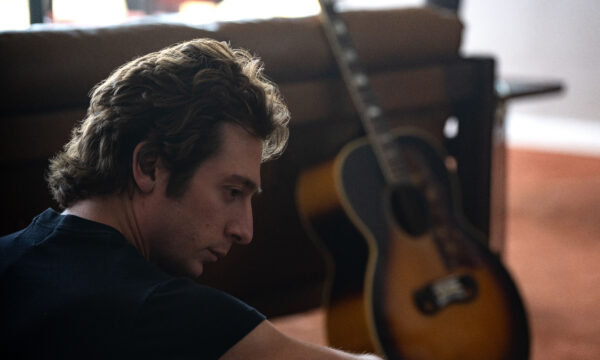
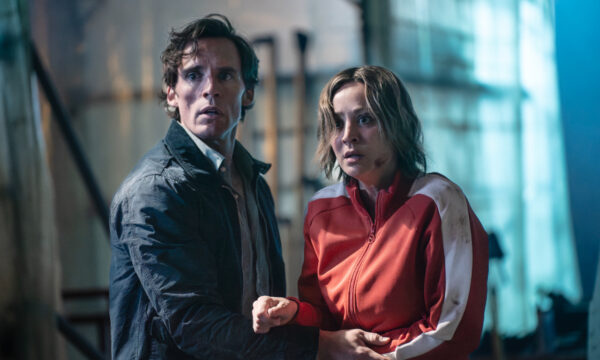
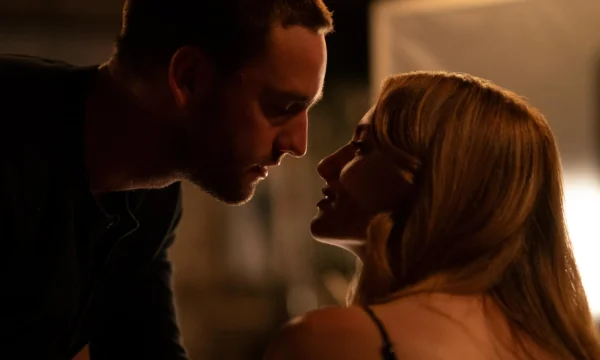

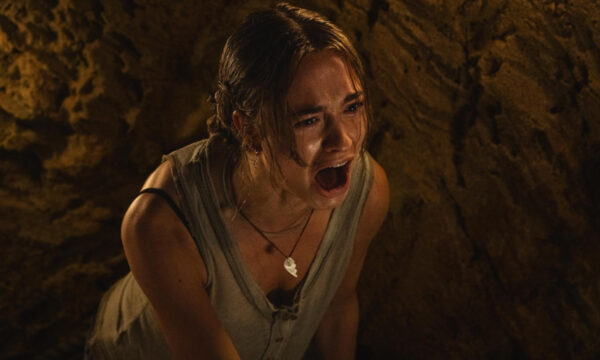
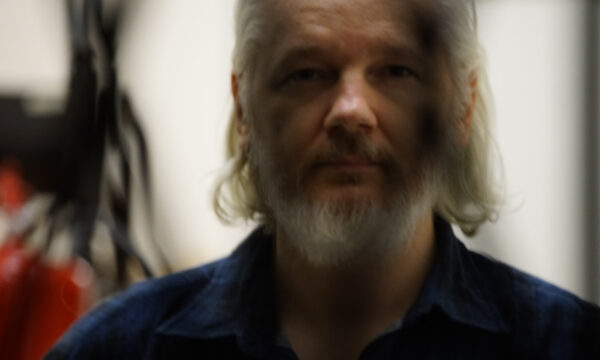
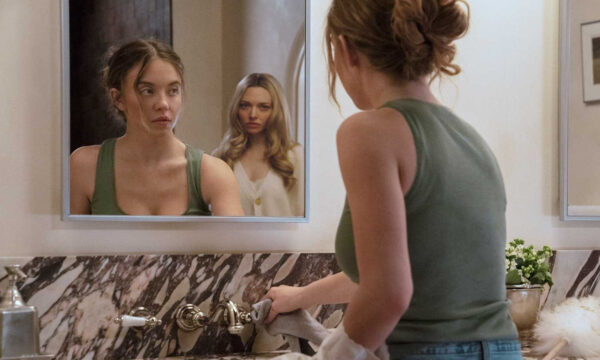
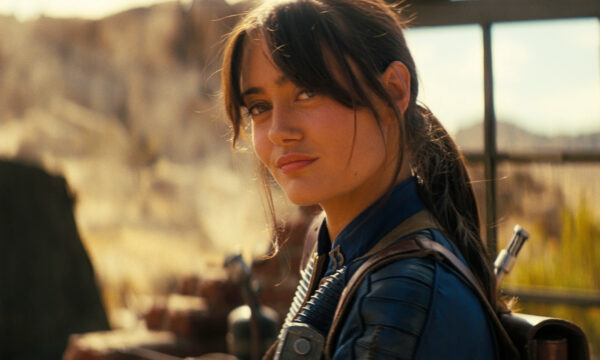




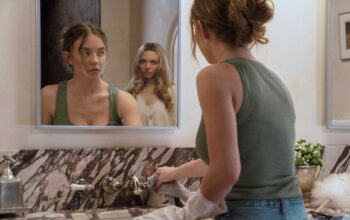

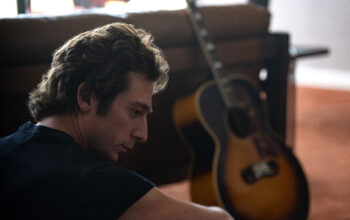
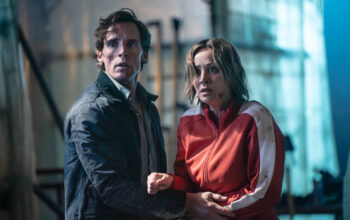

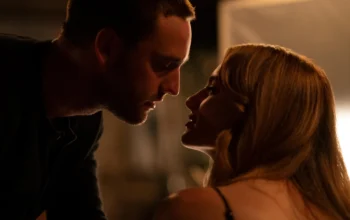




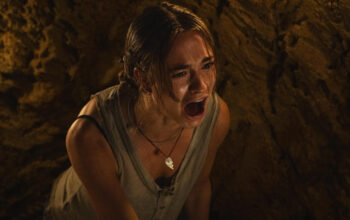
Facebook
Twitter
Instagram
YouTube
RSS